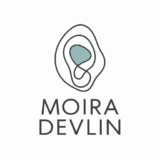Why is Lifelong Learning Far-reaching Today?
CPD stands for continuing professional development. CPD is a job role requirement of many professionals like doctors, nurses and lawyers and in industries like food, pharmaceuticals and working with children.
It is training and development of key skills and knowledge to enhance your work delivery. Most times, there is a legal obligation for employers to make sure staff are CPD certified. The world is changing, and there are consequences for organisations to keep pace. Especially with many technological advancements. Most important element of CPD training is to keep your knowledge and skills pertinent in the workplace. The push from the 4th industrial and agricultural revolutions puts more pressure on governments and organisations to maintain the working human population’s significance.
Learning Gravitas
Robots are becoming better than humans at many jobs. This will grow and many jobs for humans will be affected. Thus, making lifelong learning essential, not optional. Whether or not you sit under a CDP need as part of your job role, you should you have a lifelong learning plan.
For two key reasons. First, to create a platform for your career development, which can sustain any change. Second, we love to learn. It enhances our self-concept and makes us feel good about ourselves. In turn this can make us better at our job.
As a child, remember how it felt when you discovered something new or overcame a challenge.
Innate Curiosity
As children, we have an endless thirst for learning new things. What drives that learning quest? Curiosity is a tool children use for learning. The drive to learn additional information, perform some new action or learn a new skill comes from expecting a reward. In this way, we tie the concepts of motivation and reward to the notion of curiosity.
Research suggests we release higher amounts of dopamine when the reward is unknown and the stimulus is unfamiliar, compared to activation of dopamine when stimulus is familiar. 1 Curiosity about a subject makes it much easier to learn, keep and assimilate information about a subject.
Your natural curiosity means you will show an interest in certain activities and topics. You learn particular things for success in your day-to-day job activities. These activities exist on your curiosity continuum, experiencing everything from a 0 or 1 of dullness through to ecstasy of 9 or 10 in your learning experiences!
Win-Win
You should top up your work-related learning by exploring those things you are interested in. Your curiosity paves the way for learning, which opens your mind to new knowledge and experiences.
This feeds into your self-concept, building your confidence and helps to define your self-esteem.
Research tells us age and life stage are also significant: participation in formal learning, which decreases markedly in later life. 2
But you find if you tap into that childlike feeling of loving to learn, it will bring immense benefits to your lifelong learning journey.
Lifelong learning encompasses many things not just getting the books out to study and pass an exam or test.
Consider the details and aspects of what a lifelong learning journey means. Through uniquely tailoring your lifelong learning journey to your career and personal interests.
Education is learning what we should do, and training is learning how to do it. To succeed, we need both. As we learn, we watch out for ‘principles’, ‘fundamentals’, and ‘pattern’ to improve our learning and understanding by building foundations and connections.” 3.
You have the chance to control your lifelong learning, protect your career prospects, and enhance how you feel about yourself. What is not to like? Time to get started today!
References:
1. Costa, V D.; Tran, V L.; Turchi, Janita; Averbeck, B B. (2014). “Dopamine modulates novelty seeking behaviour during decision making”. Behavioural Neuroscience. 128 (4): 556–566.
2. Biesta, G., Field, J., Hodkinson, P., Macleod, F.J. and Goodson, I.F., 2011. Improving learning through the lifecourse: Learning lives. Taylor & Francis.BIS, 2012. National Adult Learning Survey 2010: Technical Report, BIS Research Report 63a; London: BIS.
3. Hamming, Richard, W. (1997) Art of Doing Science and Engineering: Learning to Learn, CRC Pressr
© 2022 Lifexpression Limited All Rights Reserved
© 2022 Shutterstock.com. © 2022 Envato Pty Limited


